|
The Kasiisi Project was thrilled to recently assist Iruhuura Primary School with constructing a borehole to supply the school with clean water. Iruhuura is one of 16 Kibale Forest Schools Program (KFSP) schools and currently enrolls 503 students (221 girls, 282 boys) in Levels P1-P7 (ages 4-14). In 2023, Iruhuura was also one of the top-performing schools for delivering health and conservation education programming. Although many schools have needs around water, Iruhuura was chosen for this borehole donation because its water source is both far away and unreliable. There are stretches during the dry season when water is completely unavailable to students. Outbreaks of disease linked to contaminated water consumption have also been noted in the area. SUMMARY OF impact
To drill the borehole, equipment owned by Kasiisi Project was used and we contracted an engineering company out of Fort Portal to complete the project. The well was successfully drilled at 23 feet deep and a metal pump mechanism was installed on a concrete slab. The water was then tested by an accredited testing service to ensure potability. Iruhuura will be responsible for maintaining the borehole going forward. Kasiisi Project’s US-based Executive Director and KFSP’s Country Director and Community Liaison celebrated the opening of the borehole with Iruhuura’s Head Teacher (Principal) as well as their Health Club Leader, School Management Committee Chair, and many enthusiastic students. As a gesture of gratitude, the school offered the KFSP team a bundle of matooke (bananas), a basket of vegetables, and a live female goat that will live on the project's farm...a heartfelt gift we will cherish for years to come!
"The school children have long taken dirty water, walked long distances to collect water, and sometimes missed classes. With this resource we are guaranteed clean water throughout the year. For the past ten years and above, the communities around our school has suffered from bilharzia. With this clean water, we expect no more bilharzia and typhoid in our kids. Thank you so much for this! We will remain thankful and grateful for the love and generosity you have given us." -Amanyire Rebecca, Head Teacher, Iruhuura Primary School Thank you message from Iruhuura's head teacher:
0 Comments
This year in Uganda's Kabarole District, Valentine's Day took on a significance beyond expressions of love; it was a day for making educational dreams come true! On February 14th, The Kasiisi Project and its in-country counterpart, The Kibale Forest Schools Program (KFSP), selected a new cohort of scholarship students. Since its inception in 1998, the scholarship program has been instrumental in providing opportunities for high-achieving students graduating from our 16 partner primary schools. This post-graduation support is critical, as many families in rural Uganda struggle to afford the fees required by quality secondary schools. Consequently, a staggering 65% of secondary school-aged children in Uganda find themselves out of school and facing limited prospects for their future. For girls, being out of school often means early marriages. Over the years, our scholarship program has enabled more than 130 students to access quality secondary education, which has transformed their lives. These scholarships are made possible through generous sponsorships by individual families and foundations. In 2024, we are proud to offer five scholarships that ensure recipients will have 100% of their tuition covered throughout their secondary education at the boarding school of their choice. Twenty-one students were shortlisted based on their performance on the Primary Leaving Exam (PLE), a rigorous assessment administered by the Uganda National Examinations Board to grade 7 students, evaluating their comprehension of the primary school curriculum. As part of our selection process, these students then sat for an additional written examination administered by teachers from external institutions to ensure fairness. Students scoring in the top 10 on the exam were invited for in-person interviews conducted by our Scholarship Committee. The chosen awardees were three boys and two girls: Murungi Jacinta, Ayebale Innocent, Tumwesige Micheal, Kato Prosper, and Komuhendo Recheal. We are thrilled to welcome these exceptional young people into our scholarship family and are looking forward to supporting them throughout their educational journeys. OUR 2024 Scholar COHORT:*Shown with their proud parents Every year, the demand for scholarships far exceeds our means, so we are always looking for additional sponsors. If you are passionate about transforming lives through education and wish to support a student, please reach out to us at info@kasiisiproject.org. Thank you!
2023 Goodhart Prize winners with their teachers and families. The primary level awardees were Birungi Prisca of Mituuli Primary School and Katusiime Jackline of Rutoma Primary School. The secondary level awardees were Muhindo Morian Asingya of Kyebambe Girls Secondary School (O Level) and Kabahumuza Esther of Mpanga Senior Secondary School (A Level). Winners received a T-shirt, medal, certificate, and a cash prize and were celebrated at a ceremony, which was held this year at Mpanga Secondary School. Around 200 students as well as teachers, parents, and distinguished guests were in attendance, including a female member of Parliament and the District Education Officer. Guests cheered on the winners as their names and scores were announced. "The atmosphere was electric," said Dr. Emily Otali, Country Director for Kasiisi Project and Kibale Forest Schools Program. Otali spoke at the event about her own journey as a Ugandan woman in science (she was Uganda's first female Ph.D. primatologist) and about the need to recruit more girls into math and science to meet the ongoing and future challenges facing Uganda, including those associated with climate change. Otali noted that the Goodhart Prize goes beyond benefitting four girls. "This has a ripple effect because the success of these girls inspires others that they too can excel, even coming from a rural district such as Kabarole. That hope is everything." When asked what this award meant to them, the awardees emphasized self motivation and the importance of inspiring others. Morian Asingya said, "This means a lot to me and has motivated me to work harder and to encourage other girls to perform very well." Similarly, Kabahumuza Esther (see video link below) said she will "always keep the candle burning and I'll always inspire more girls to do the same." She also expressed thanks for the existence of the Goodhart Prize and encouraged everyone to "Keep inspiring young girls. Keep inspiring Ugandans such that we can become the light of Uganda."
We would like to express our deep gratitude to AOF for their continued partnership that makes this important annual award possible. Thanks also to Tara Peterson of Stupendous Design for creating this year's T-shirt design.
The Kasiisi Project is thrilled to welcome Tammie Bettinger, Ph.D. to the Kasiisi Project Board of Directors. Tammie brings more than 30 years of experience in the conservation and animal fields. Tammie retired in 2017 as the Animal Operations Director at Disney’s Animal Kingdom. While there, she chaired the Disney Conservation Fund’s Africa Committee for more than a decade. Tammie is an expert on primates and great apes, and has held leadership roles in the International Primatological Society, AZA's Chimpanzee Species Survival Plan, and the sanctuary sector. She was a former board member for Chimp Haven and the Pan African Sanctuary Alliance and helped found the Gorilla Rehabilitation and Conservation Education (GRACE) Center for orphaned Grauer's gorillas in the Democratic Republic of Congo.
Tammie has worked extensively in Uganda on conservation education programs, leading training for educators at the Ngamba Island Chimpanzee Sanctuary, chimpanzee trekking guides at Pabidi, and community educators at Bushingiro (Pabidi and Bushingiro are in Budongo Forest). Through her work with GRACE, she has also collaborated with Kasiisi Project on education programs with primary schools. Tammie is especially passionate about working with local communities and is excited to join the Kasiisi Project team. She said, "The only way to conserve chimpanzees is to empower people living closest to them. I have been following Kasiisi Project's work for more than 20 years and am so impressed with the impact they've made at Kibale. I look forward to contributing in any way I can." We are honored to have Tammie in this leadership role and look forward to working with her. 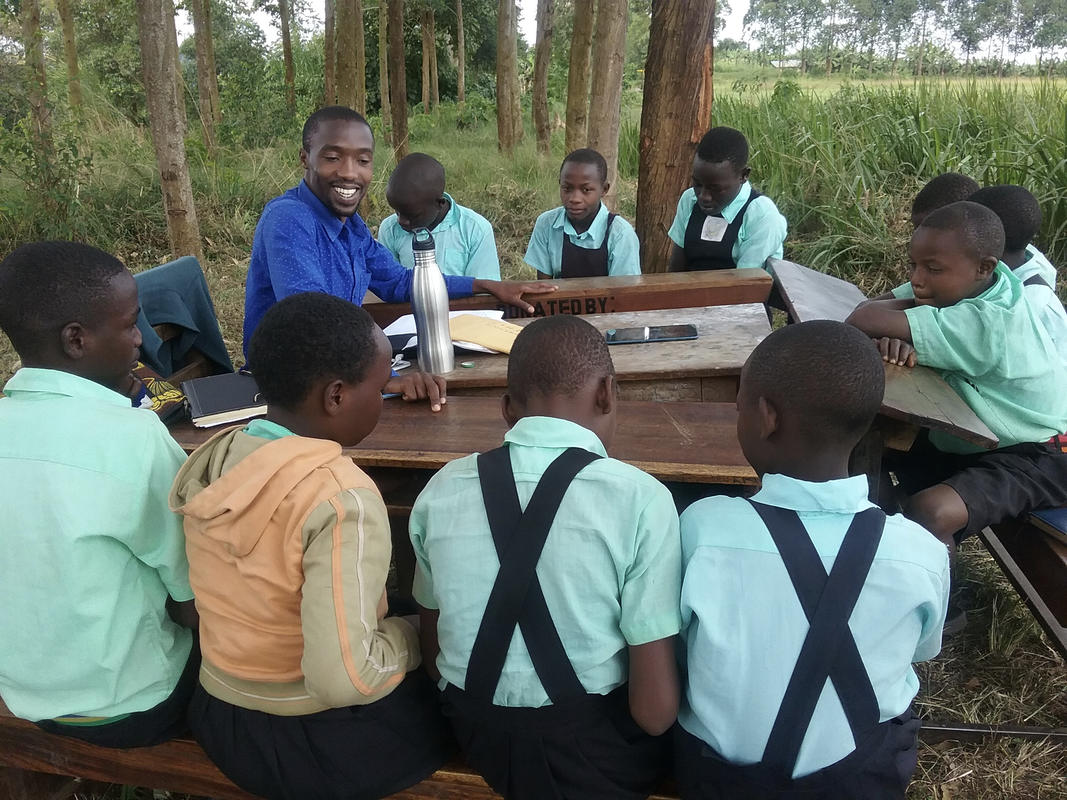 It is with great excitement and huge gratitude to the National Geographic Society that we announce that Patrick Tusiime, Field Director of our partner NGO, the Kibale Forest Schools Program, has been awarded a grant for his project “Oral History as a Conservation Education Tool”. This project, takes a unique approach to understanding the role of indigenous knowledge and belief systems in developing effective conservation strategies around Kibale National Park, Uganda. Through our project, an independently organized program, using StoryCorps DIY model, we will recruit and train children to record personal histories of older members of their villages, highlighting experiences existing alongside wild animals, how the resources of the park were traditionally used, and how things changed when it became a National Park. We will explore the role of tradition and myth, and indigenous knowledge, and explore customary land use and long-established conservation strategies, critically important for successful conservation. We send big thank you’s to our friends at StoryCorps for their guidance helping Pat write the grant and for their advice going forward. @insidenatgeo @storycorps  We have exciting news. As of March 15th 2023, I am stepping down as Executive Director, handing over the reins to Sonya Kahlenberg PhD., who will act as Interim Executive Director for at least the next 12 months. Sonya could not be more perfect for this role. She knows Kibale well. She did her doctoral research in Kibale National Park with chimpanzees and co-directed the Kibale Snare Removal Project with our Ugandan project director, Dr. Emily Otali, for two years. She was an early partner with the Kasiisi Project, serving as volunteer, advisor, co-director and for many years board member. She is an avid conservationist with wide-ranging experience including two decades in the nonprofit sector, international field research, collegiate-level teaching, and leading impactful projects around the globe. Her conservation work has centered on iconic flagship species, such as great apes, but also extends to landscape-level and community-centered approaches. She was the first Executive Director for the Gorilla Rehabilitation and Conservation Education (GRACE) Center, an organization focused on Critically Endangered Grauer’s gorillas in eastern Democratic Republic of Congo. She helped build GRACE into an award-winning organization. Also, Sonya recently served as the Senior Director of Strategy and Operations for Legado, a nonprofit that works in Africa and Latin America to support holistic and community-centered approaches in conservation, and as Senior Advisor to the Macaw Recovery Network, which protects and recovers macaw populations in Costa Rica. She says she is excited to return to Uganda to help guide the Kasiisi Project towards an exciting future, but not as excited as we are to have her. I will stay on the Board to provide continuity, and we hope that you will continue to have the same confidence in the project and our work that you did with me, as we move, under Sonya’s expert guidance, into our next phase. Elizabeth Ross Executive Director: The Kasiisi Project For the past 3 years we have been collecting clinical samples to elucidate how viruses that cause pediatric respiratory infections move from children to the wild chimpanzees of the Kyanyawara community in Kibale National Park, Uganda, potentially causing fatal sickness.
In January DMV/PhD student Taylor Weary and Kasiisi Project Health Staff shared their initial results with the people who generously allowed us to continue to collect nasal swabs from themselves and their children throughout the pandemic. Presentations were also made to local government health officials and the Uganda Wildlife Authority. In 2022, thanks to funding from the Arcus Foundation, we expanded the project to collect samples from 3 other great ape sites, two chimpanzee and one mountain Gorilla, and changed the name of the project from Healthy Children: Healthy Chimps to Healthy Children: Healthy Apes. Just before they went on Christmas leave the staff of the Kasiisi Project in Uganda celebrated the end of a challenging but none-the-less successful year with balloons, roast goat, and cake. Post-Covid burgeoning class size, high drop out rates and the loss of two years of class time topped by an outbreak of Ebola impacted everyone, but despite these difficulties students and teachers worked hard to catch up!
We very much look forward to sharing a a terrific 2023 with you! 2022 has been a year of getting back on our feet. We are aware that we have not been the best communicators, but when a donor said they weren’t sure whether we were still in existence, we realized what a really bad job we have been doing! We have been working hard to kickstart many of our programs but that is no excuse for not keeping all of you who support them informed. We have now hired a “Media Mogul” to ensure that we will be posting regular BLOGS in 2023 and keeping you updated! In Uganda, schools have slowly recovered from COVID shutdowns, although about 30% of children did not return after lockdown; lost to early marriage, the informal economy, and supporting their families. Just as schools climbed out of the COVID trench, however, Ebola struck in September and schools closed again. Luckily it seems that they have it under control and we cross our fingers for a successful 2023, uninterrupted by crises. 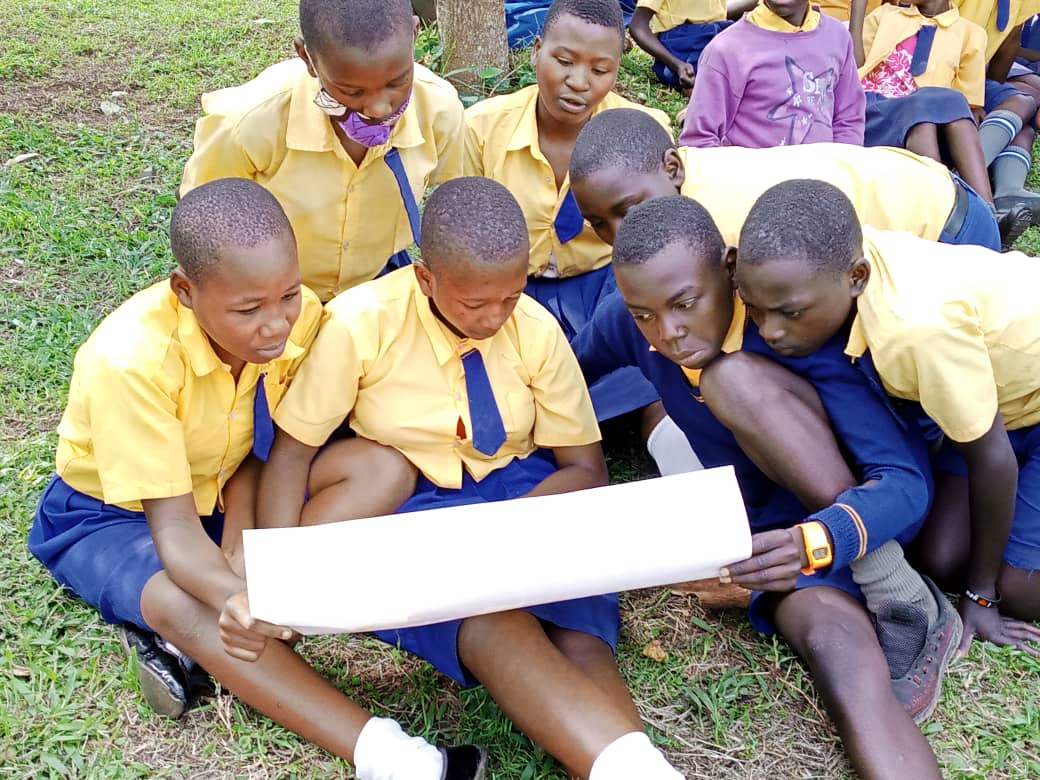 Inquisitive discussion at a Health Club meeting. Inquisitive discussion at a Health Club meeting. The war in Ukraine has driven prices for building materials sky high in Uganda and our costs for salaries and transport, always our biggest expense, have risen 10%. All this just at a time when two years of COVID neglect have left all schools with major infrastructure issues. We have been stretching every dollar to repair classrooms, build desks for a burgeoning school population and construct desperately needed latrines. Our Annual Report will come out in January with lots of information on everything we have achieved this year in partnership with our communities to support schools, community health and the environment. Looking back on everything that we have done and what this past year has brought to us, we are overwhelmed with gratitude and also proud of what we have been able to accomplish, especially of the work of our Ugandan NGO - students, parents, community and research partners, and all of our many supporters! So, before 2023 is upon us, we want to acknowledge each of our community members and to share the story of our year - be on the look-out for our upcoming posts!
And of course, please contact us at elizabethaross@me.com if you want any information. We hope that you have a wonderful holiday season and a happy and healthy 2023! We were honored and thrilled recently when the Disney Conservation Fund awarded our Bee Project with support for 2023 and 2024!! Since 2020, we have been working with Citizen Scientist farmer-beekeepers who live along the border of Kibale National Park and who maintain apiaries that, in conjunction with trenches, intend to serve as natural barriers against elephant crop-raiding. 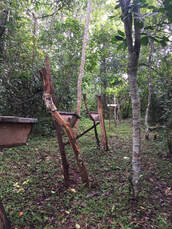 We gather data about honey bee health in order to try to understand whether these “bee fences” can be effective over the long term at maintaining good neighborly relations between the elephants (who are terrified of bees!) and the communities of subsistence farmers just outside of KNP. Thanks to Disney, we will continue gathering data about the bees while also expanding the project to collect survey data about elephant incursions. Our Bee Project Team, will begin tracking all incidents of elephant crop-raiding and interviewing affected farmers, both in areas protected by bee fences and in areas without them. With this information, we hope to gain more insight into just how successful are our fierce winged guards at keeping the peace! We also have been working with Citizen Science beekeepers in a region more arid than the rainforest conditions of Kibale National Park, adjacent to Queen Elizabeth National Park. The QENP beekeepers are collecting the same kinds of information about bee health as the KNP beekeepers - ability to maintain healthy temperature and humidity using BroodMinder™ devices, data from physical hive checks (e.g., number of combs where the queen bee has laid brood eggs, number of combs where the bees have gathered and stored pollen, number of combs filled with honey, presence or absence of pests like ants or beetles). Our hope is that by collecting data from a more arid region, we can isolate the effects that rainfall may have on bee health - especially as rainfall seems to be increasing around KNP as a result of climate change. We are so grateful to the Akron Zoo for supporting this expansion of our Bee Project into QENP and to the other amazing organizations who also support our Bee Project, the National Geographic Society, the Oklahoma City Zoo, and IDEA WILD!
|
�
Categories
All
Archives
February 2024
|
Home
|
About Us
|
Legal
|
© THE KASIISI PROJECT. ALL RIGHTS RESERVED.
The Kasiisi Project is a registered 501(c)(3) nonprofit organization. Contributions to the Kasiisi Project are tax deductible to the extent permitted by law. The Kasiisi Project's tax identification number is 54-2195079. |

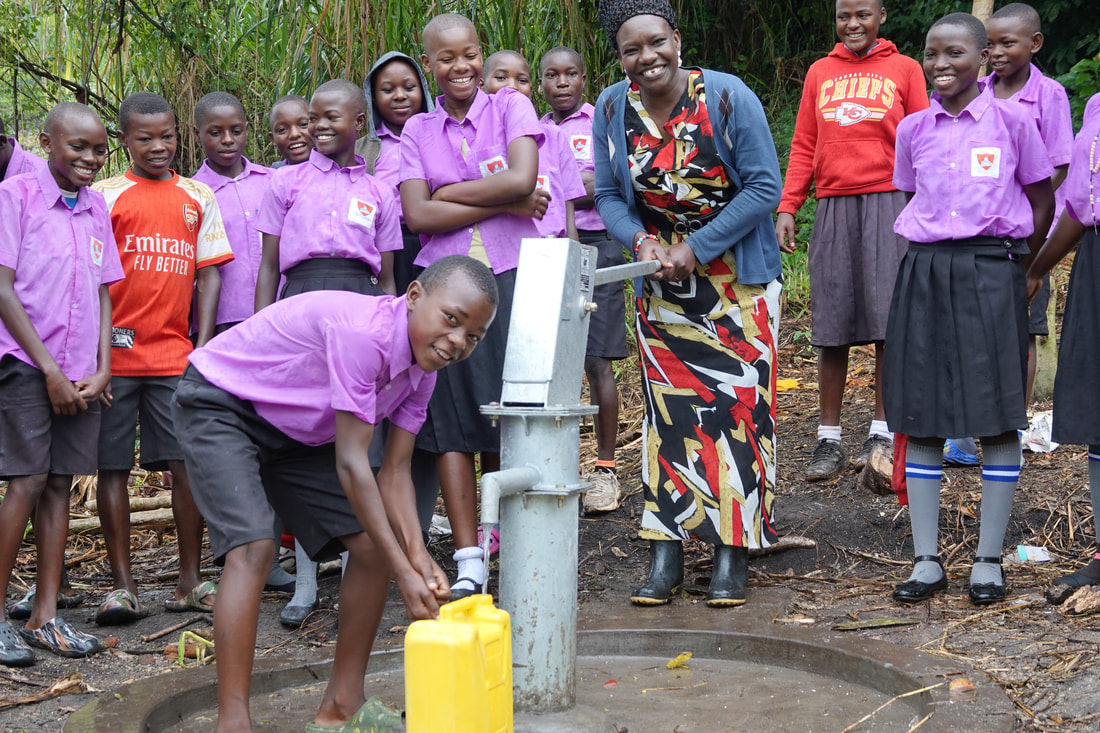
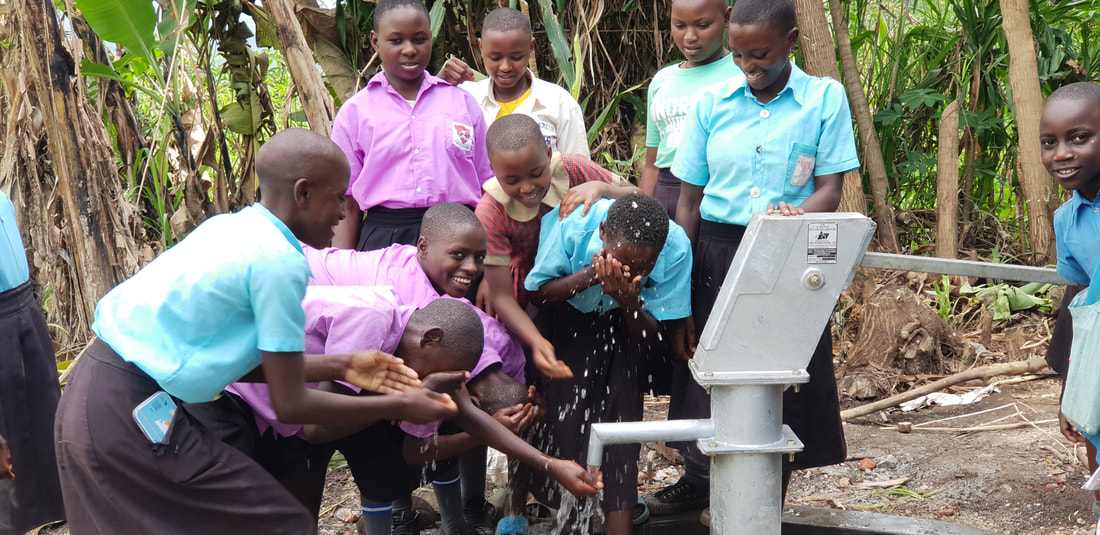

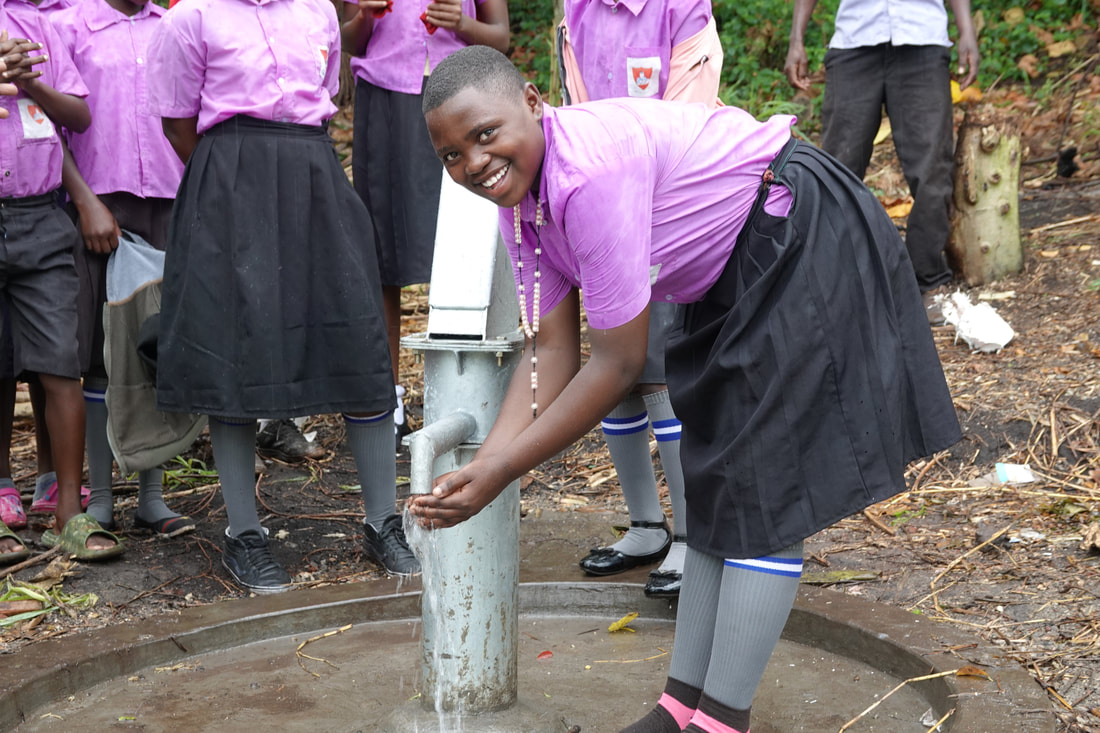
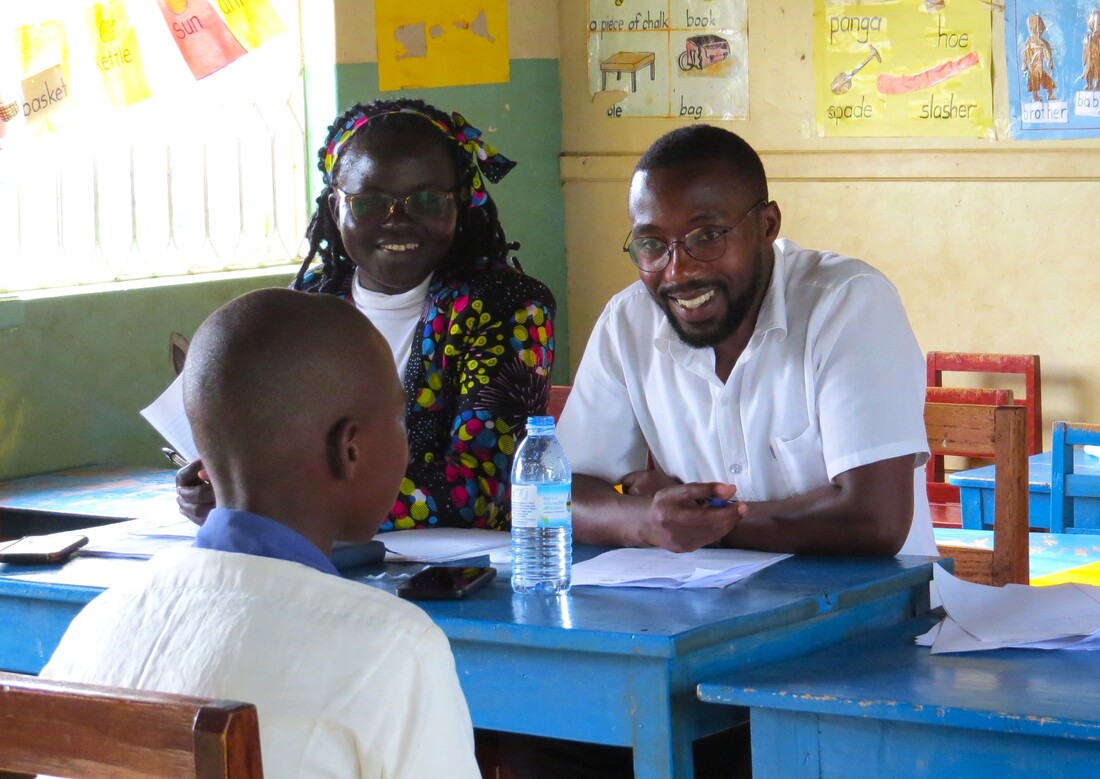
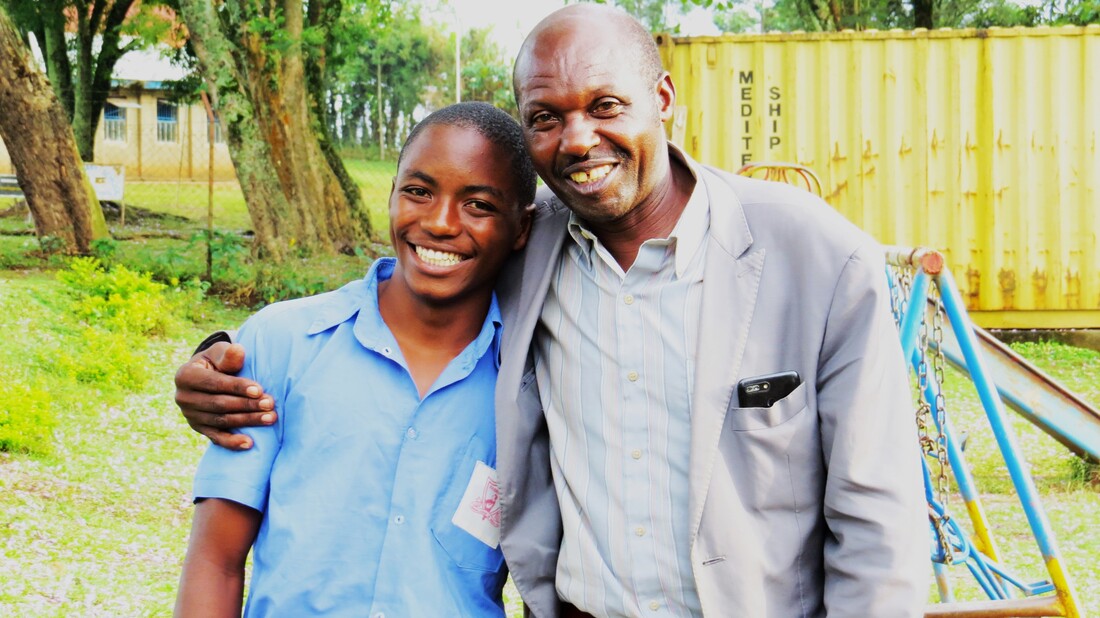
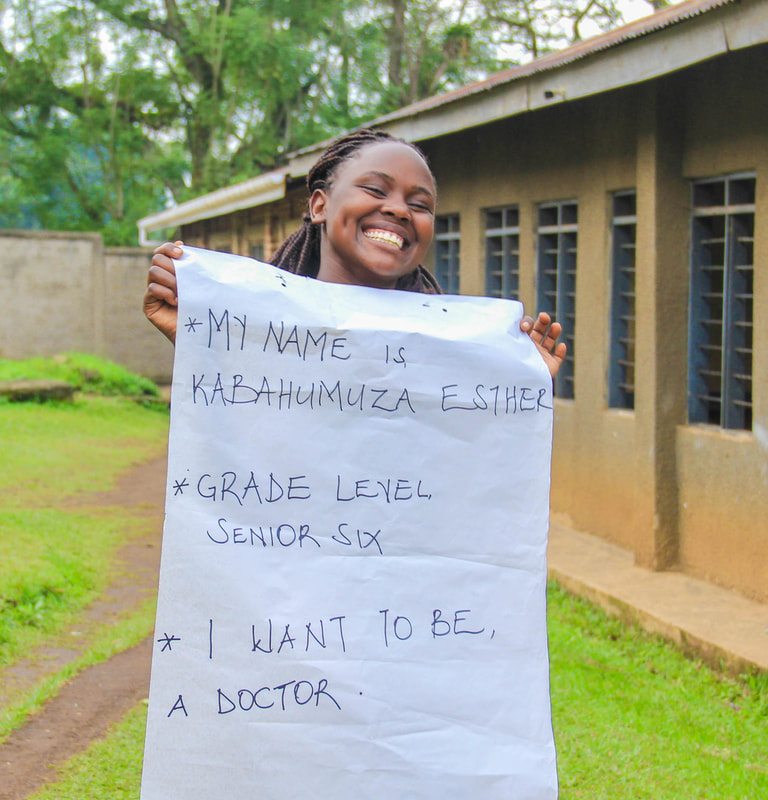
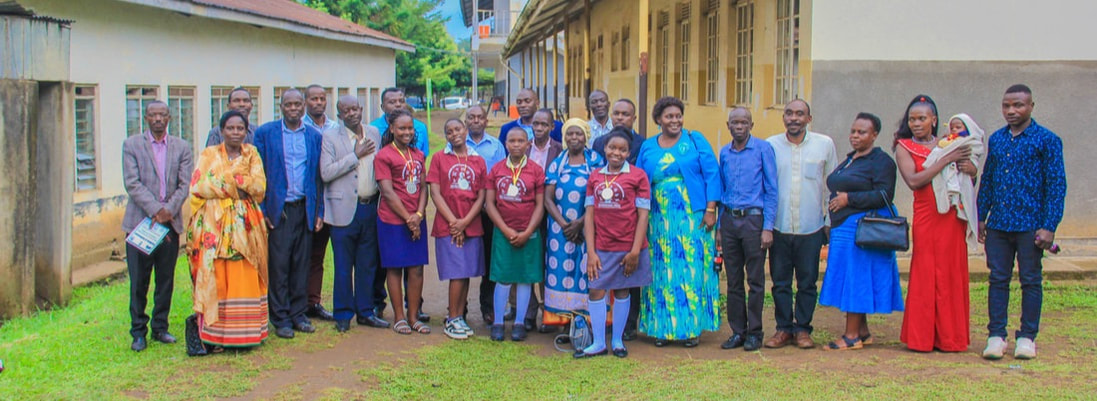



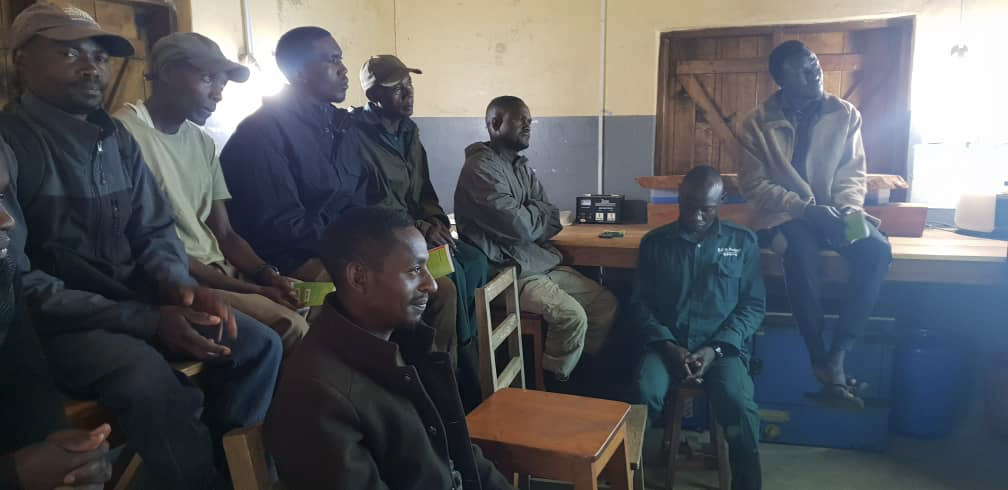
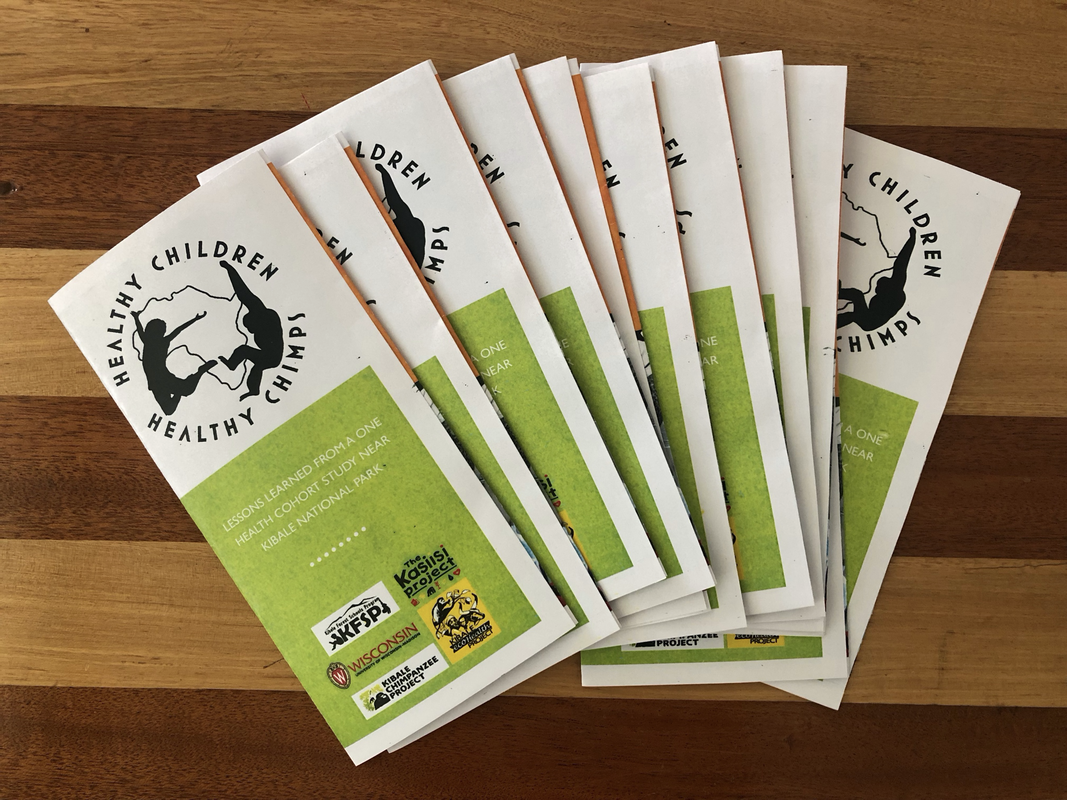
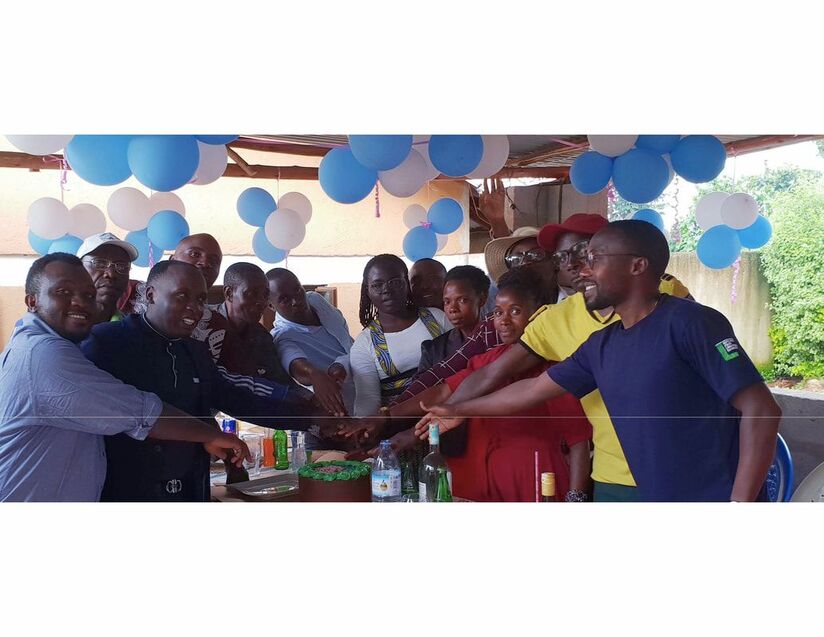
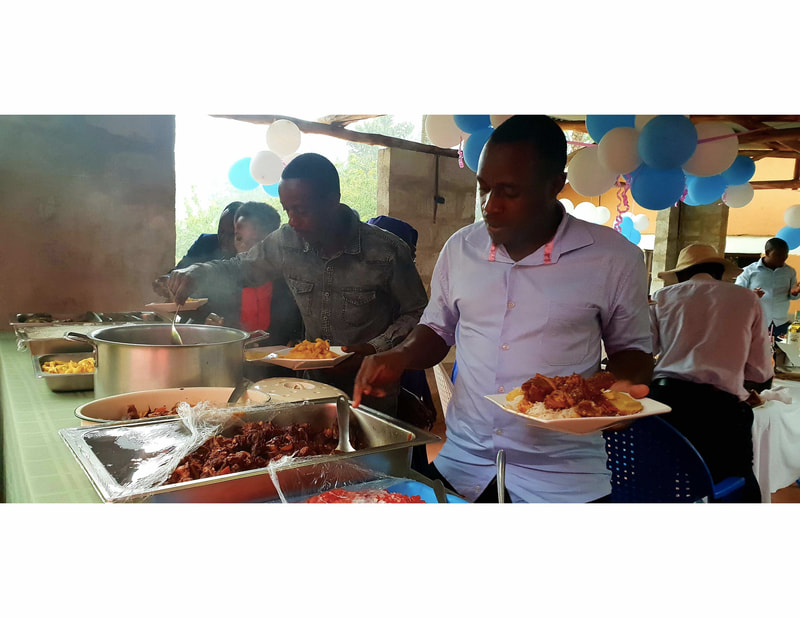
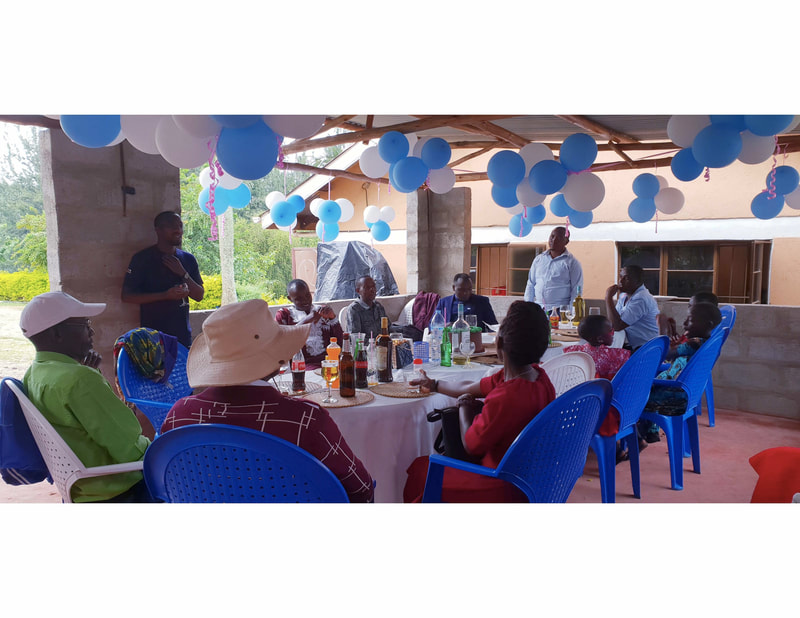
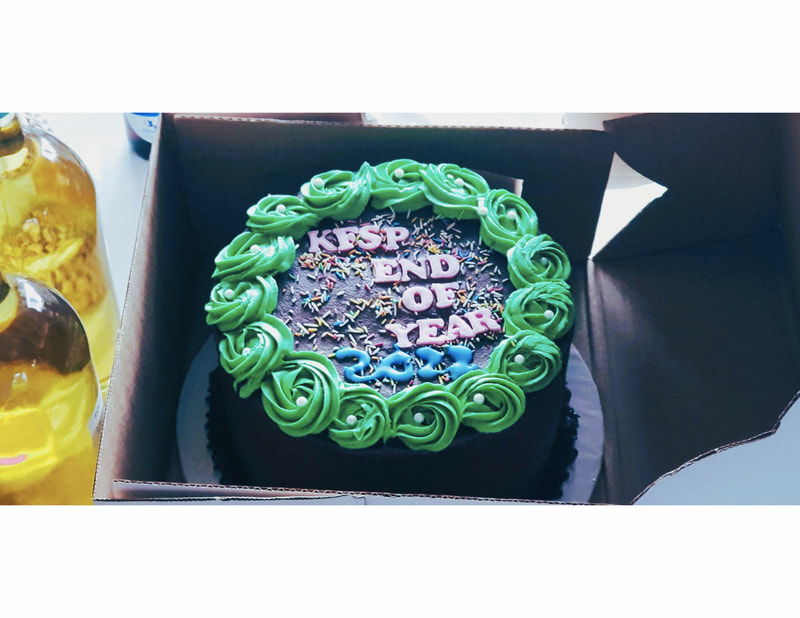
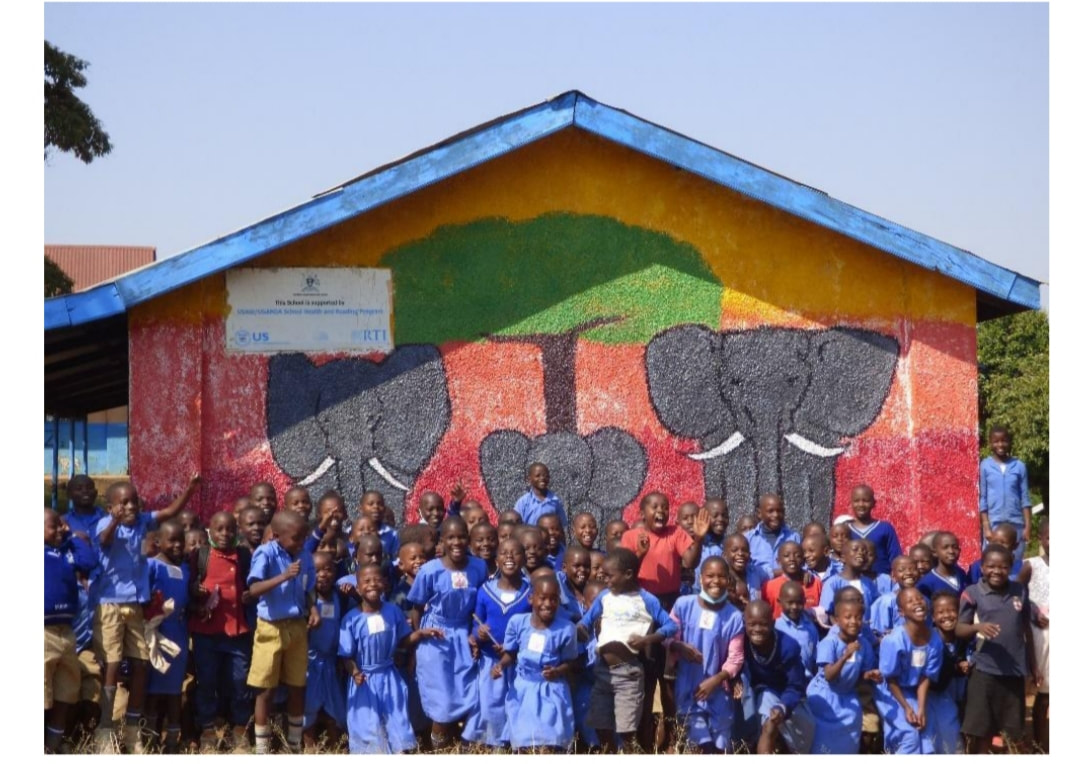
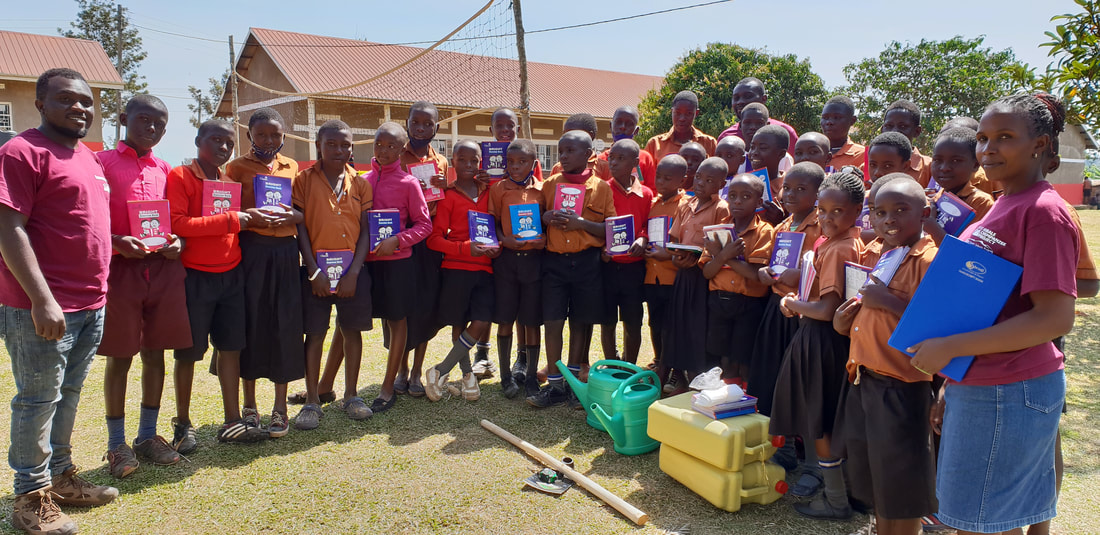
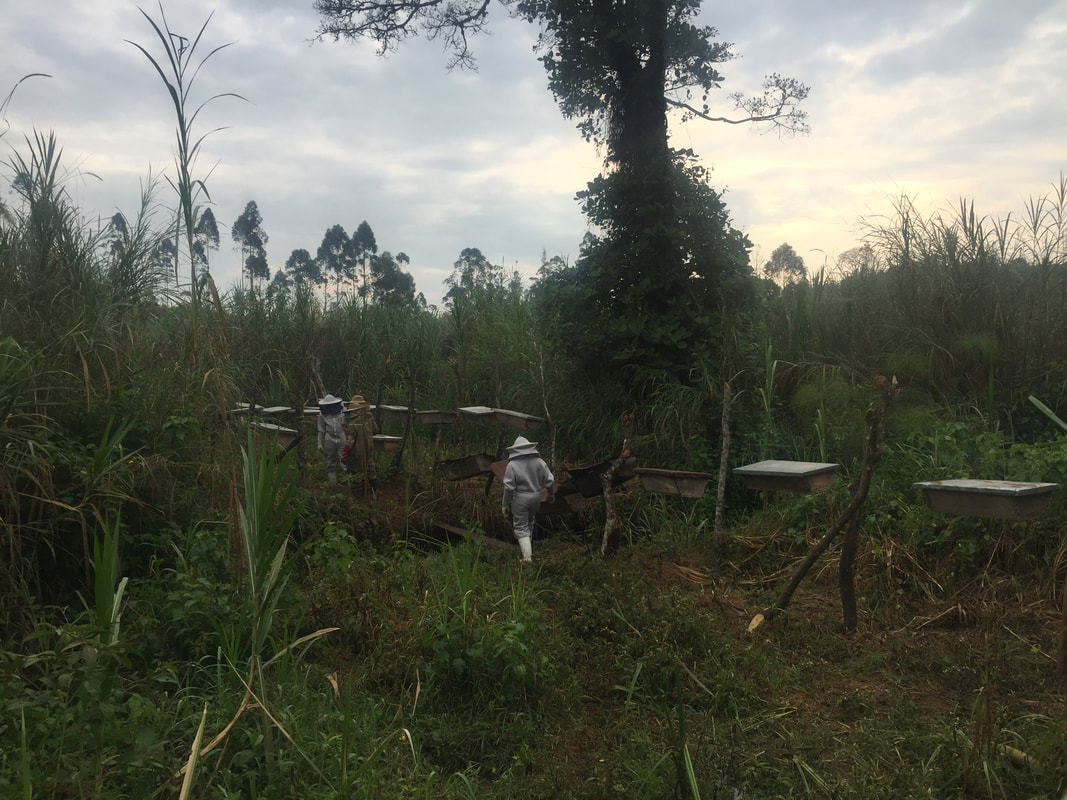
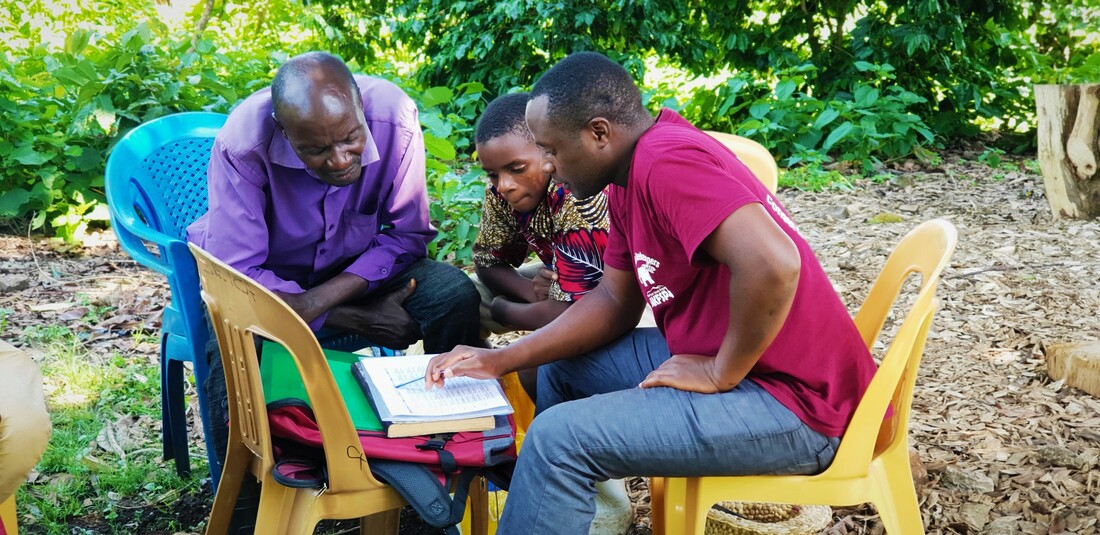
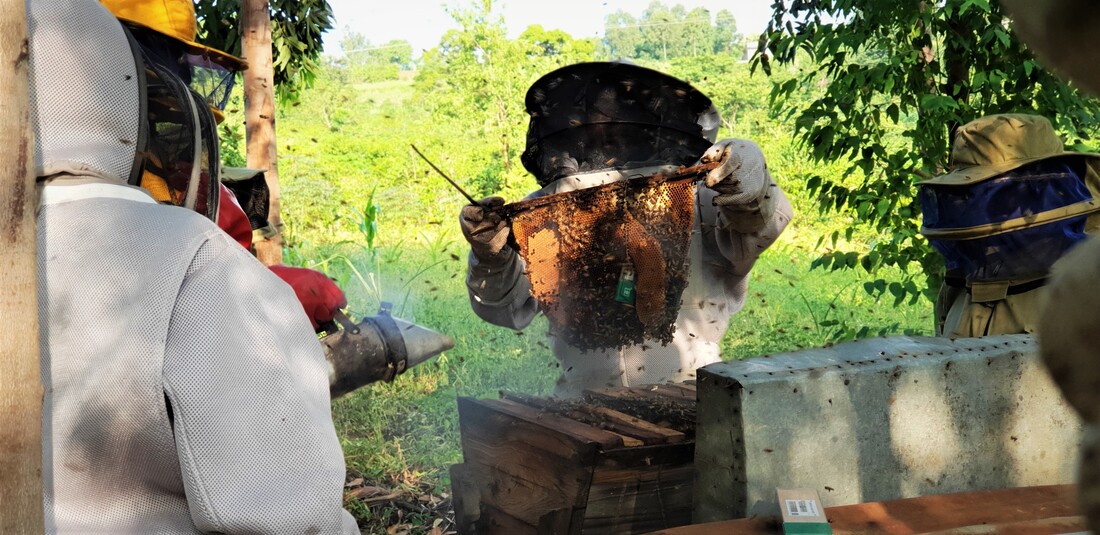



 RSS Feed
RSS Feed


